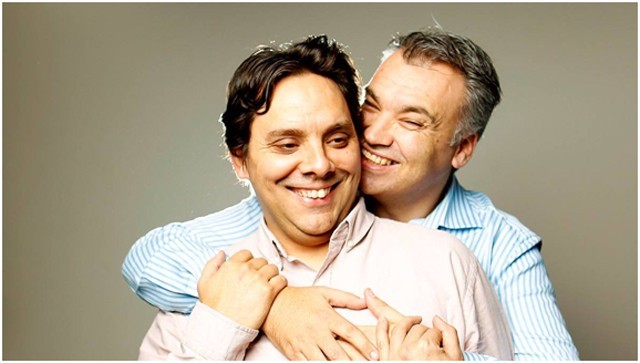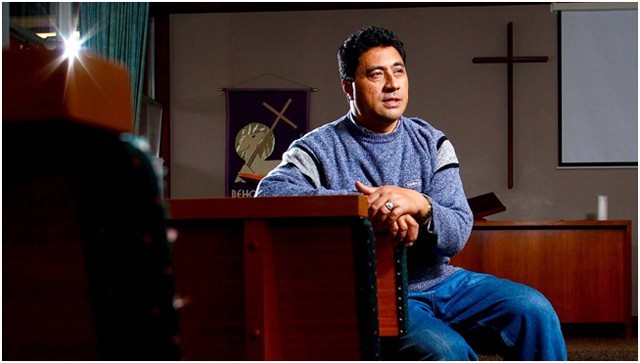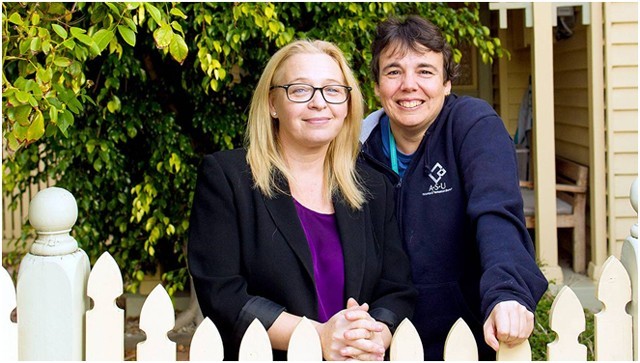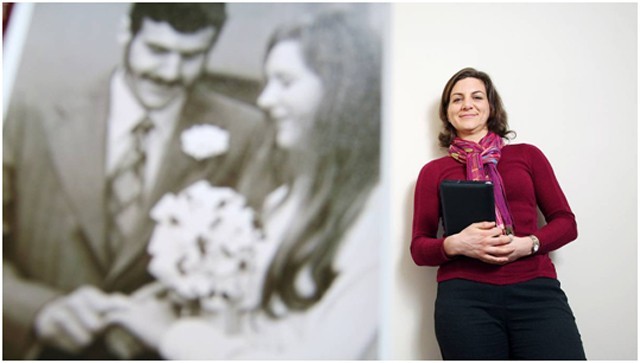Australia is meant to be the lucky country, the country of the fair go, says Melton’s Peter Ellis. But somewhere along the line we dropped the ball.
Ellis’s half-Aboriginal family, and friends – both straight and gay – are longing for him and his partner Wayne Elliott to marry.
Ellis, whose mother is Aboriginal and who works in Aboriginal health, had an Anglican-Wesleyan upbringing. “I certainly have a lot of love for God and a lot of love for my faith and it’s something that I feel I need to express as a Christian – that something I would want to do is marry my partner.
“I was brought up with a Labor Party background. My grandmother was a mayoress of Broadmeadows and my family is very Labor-oriented. We don’t want gay marriage to be the political football it is now because it’s not a Labor or a Liberal or a Greens issue; it’s a social issue that everybody can own.
“I’ve got a wonderful heterosexual family and friends who are married and have kids and they are waiting for us to have that big day … they want to be a part of it.”
Ellis says he wouldn’t jump on a plane to a country like Canada or Argentina where same-sex marriage is legal.
“I don’t live there, I live here,” he says. “I’m a proud Aboriginal person and I want to celebrate my relationship with my loved ones in my own country, not someone else’s country.
“When you think back to the social justice movement for black fellas back in the ’60s and ’70s, then, absolutely, gay people are still experiencing that level of discrimination.
“A lot of the argument against gay marriage is about their religious ideal of what marriage is about … but I know many people who are not necessarily religious people who still get married. Athiests can get married.”
Ellis says a civil union is like “half a marriage, kind of a marriage”, that doesn’t afford equality when it came to decisions about things like medical power of attorney, wills and probate and adoptions laws.
Elliott, whose three children from a previous marriage are also waiting for him to marry, said equality would send the right message to young people who had not come out.
Keilor East Airport West Uniting Church’s Reverend Samasoni Nafatali is ready to conduct weddings for people of any sexual orientation or gender identity – as soon as the hierarchy and government say ‘yes’.
The Samoan minister is not preaching to the converted among his flock and reiterates that he can’t speak for the church or congregation but only himself. “It’s an unfortunate situation because the church has come a long way.
“Through these past 2000 years there have been issues the church has been trying to deal with. And the message the church is trying to convey is to help people liberate, help people feel free to live life to the full, and that’s a message Jesus was trying to convey: that people may have life, receive life and live it to the full.”
Nafatali says it wasn’t long ago that blacks, women and children weren’t recognised as having equal rights. “If we come back to the women’s issue, women have been liberated from the Western point of view. They have the right to live life to the full. I think helping people liberate and be free is part of the gospel.”
Yarraville’s Lisa Stingel met her girlfriend Wil Stracke as a nurse in Daylesford Hospital when a mutual friend came in as a patient. When Starke came out “many years ago”, society was still arguing about whether a lesbian or gay person could see their partner in hospital.
Stingel eventually asked Starke out to dinner and the rest is history. “When people talk about marriage equality and anything like that, I forget they’re talking about us because our lives are just so normal,” says Stingel.
“I don’t see myself as different to anybody else; the only difference for me is that at the end of the night I go to bed with a woman and not a man.”
The two haven’t talked about whether they will get married, but they want the option. Stingel has two daughters from a previous partnership but never married.
“Not until we got together and I fell in love and not until I felt this is something I’m actually feeling quite passionate about [did I think about marriage] for the first time,” Stingel says. “I want the right to be able to ask Will to marry me and spend the rest of her life with me.” They don’t want the option of a civil union, or what Starke likens to a “skim milk marriage”. Starke says she would never want someone who didn’t want to marry them to conduct the ceremony – whether a priest or civil celebrant.
Altona North celebrant Libby Williams believes a marriage should simply be between two people who love each other.
“A marriage is a marriage is a marriage,” laughs Williams, who happens to be bisexual.
She says 65 per cent of marriages are civil functions, not religious ones. “One of the things the government promotes about marriage is facilitating a stable society, you know, historically.
“I think if that’s the essence of a healthy, stable society and [helps] families to grow and so forth, well, I just think, why not? You don’t need to be married, obviously, to live together or have a family, but it’s an opportunity for people, before their family and friends, to declare their love to each other.
“I think, often, gay couples have had a lot of challenges in their lives so they’re even more determined to be together – you know, it might have been harder for them to find the one.”
Rona Goold, head of Australia’s Civil Celebrations Network says: “Let’s give couples the freedom of their preferred style of ceremony and not believe the myth that legal marriage is religious. Even Oliver Cromwell forbade marriage in churches for that reason.
“We don’t need to be so ungenerous of spirit. Fair is fair.”
Images: Michael Copp
Author: Goya Dmytryshchak
Publication: Maribyrnong & Hobsons Bay Weekly
Date: 10 July 2013




